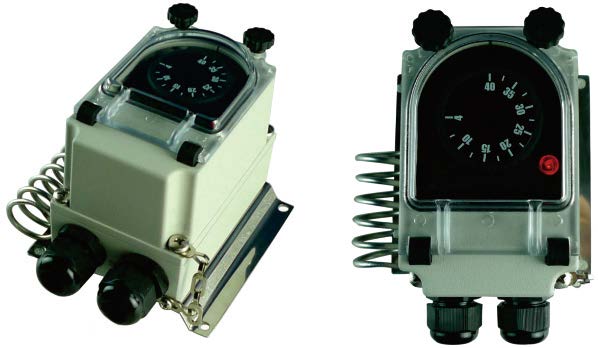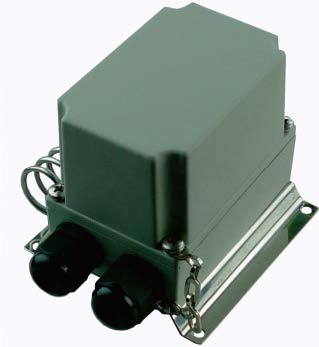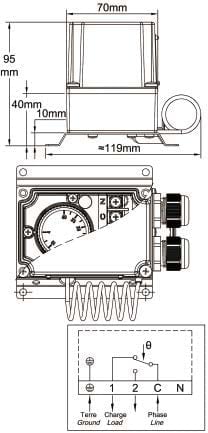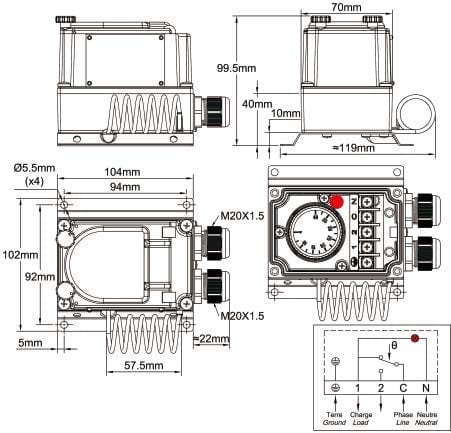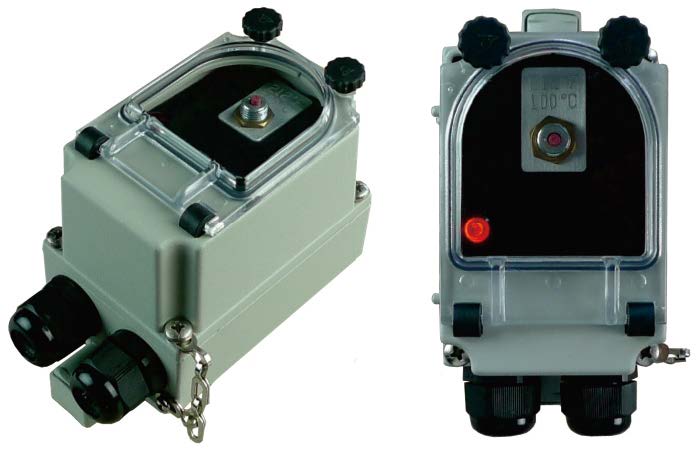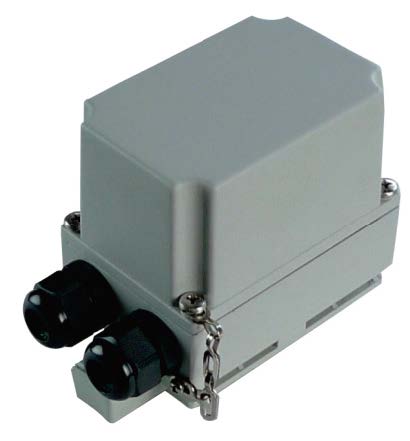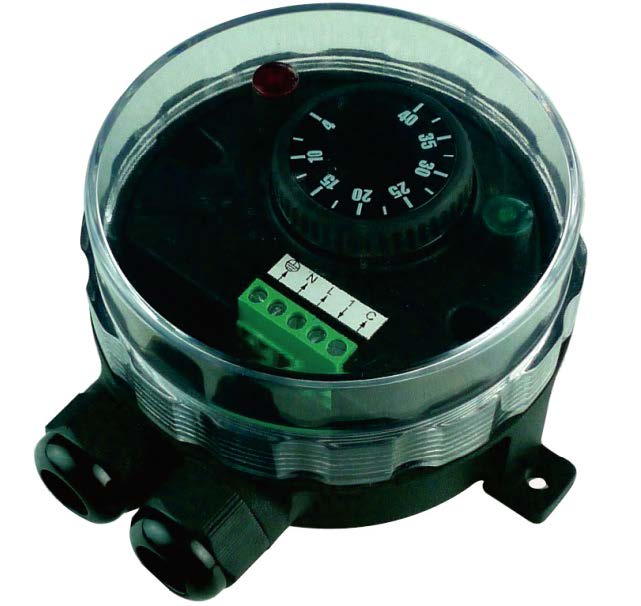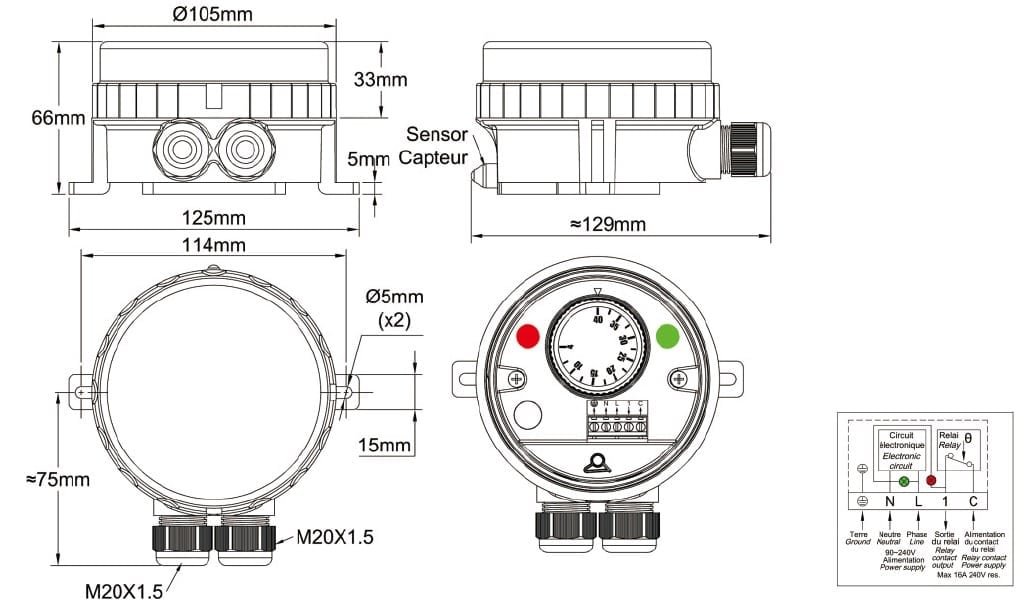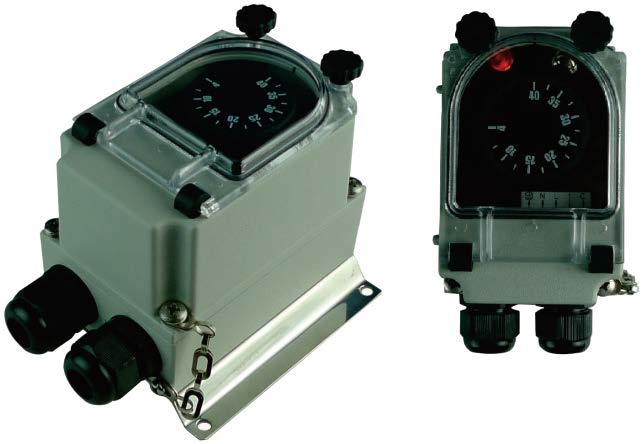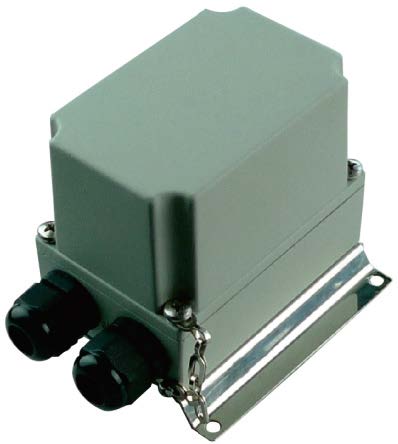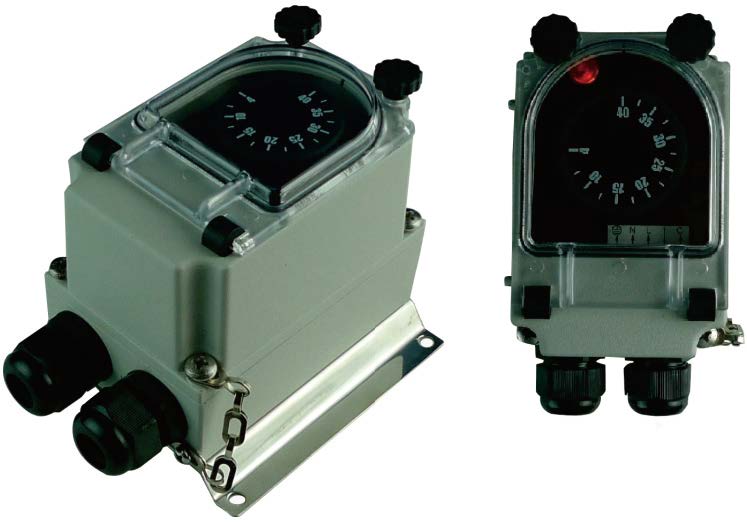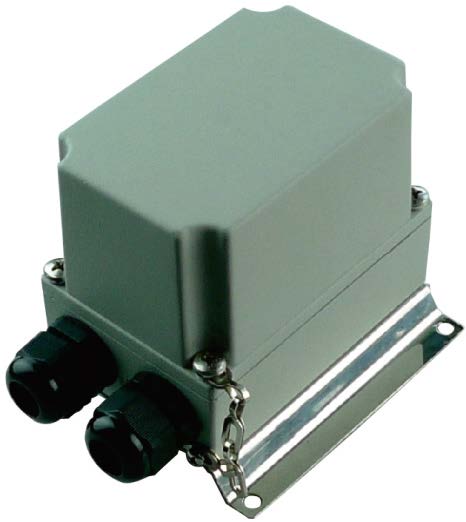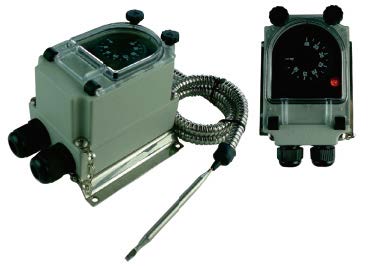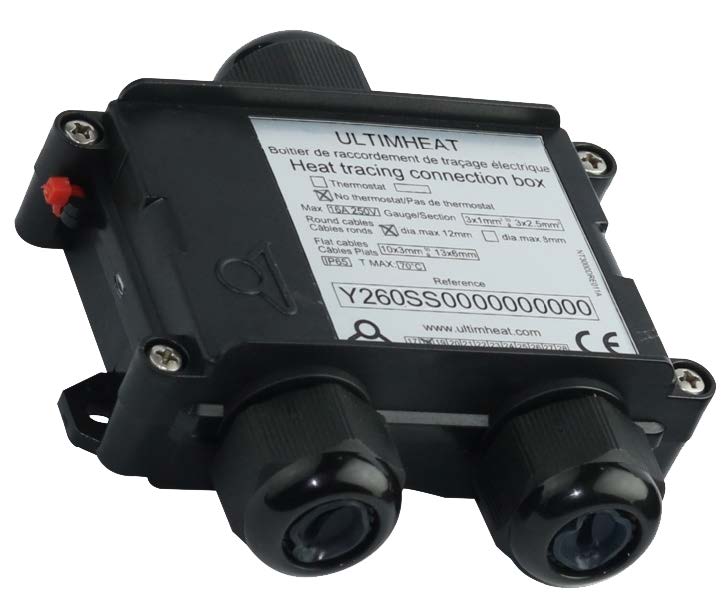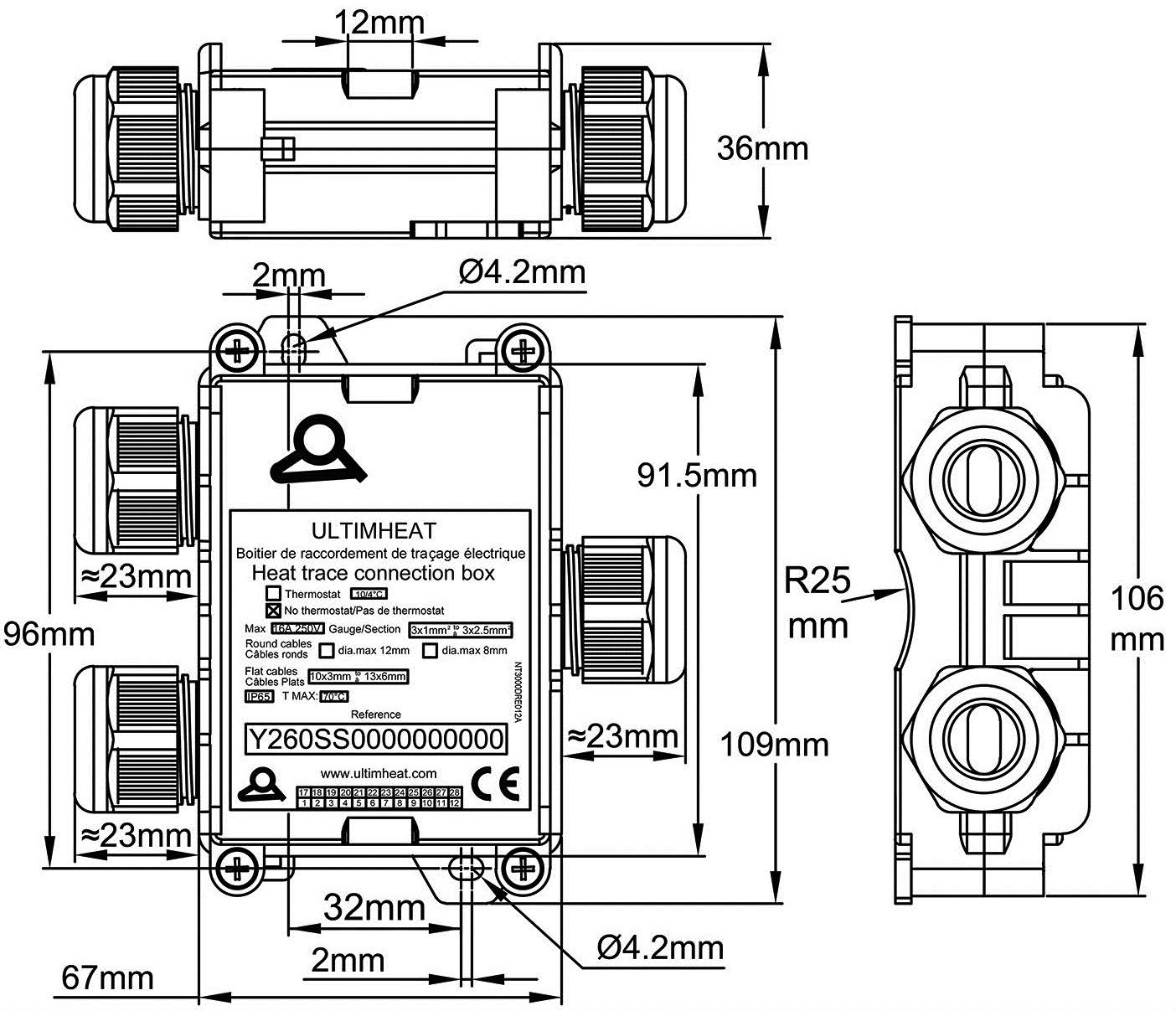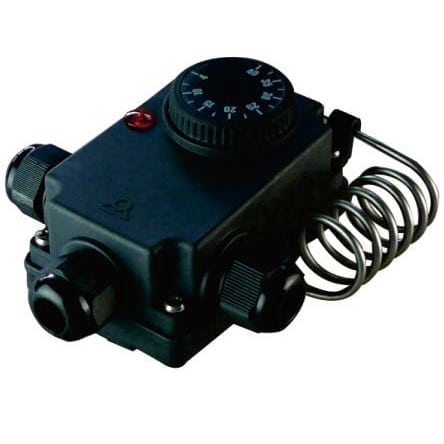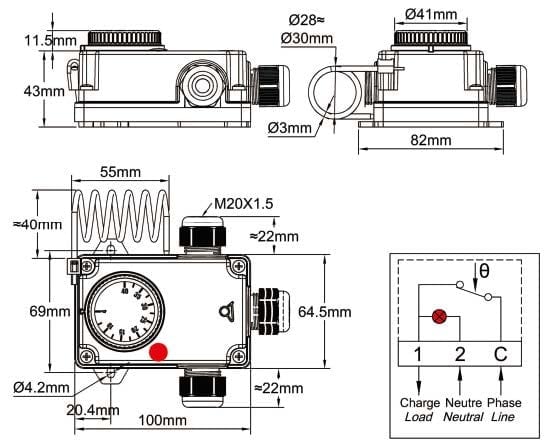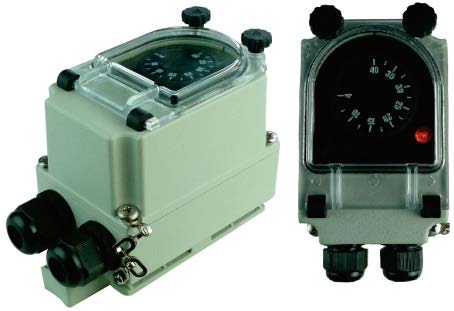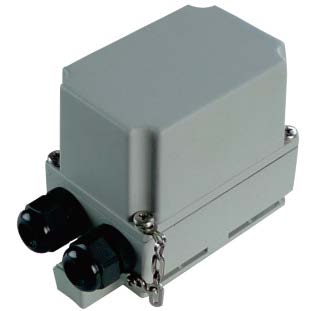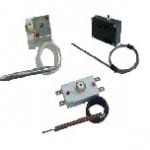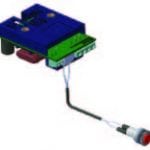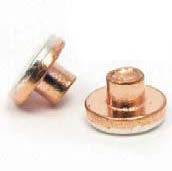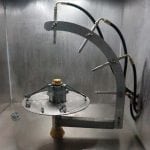Pigtail bulb room thermostat IP65
Applications
-Wall mounting for indoor or outdoor temperature control of cold rooms.
-Temperature control of industrial or commercial premises.
-Outdoor temperature control of antifreeze heaters.
-Green houses and livestock stables temperature control.
| Housing raw material | |
|---|---|
| Color | |
| Ingress protection | |
| Mechanical protection | |
| Contact Material | |
| Electrical rating | |
| Voltage | |
| Electrical life (cycles at rated value) | |
| Measurement type | |
| Sensing element | |
| Temperature adjustment range (°C) | |
| Differential (°C) | |
| Setting adjustment |
| Enclosure | Type | Operation | Contact | Measurement | Ranges °C | Models |
| IP65, IK10 | Control | Mechanical | SPDT | Ambient | 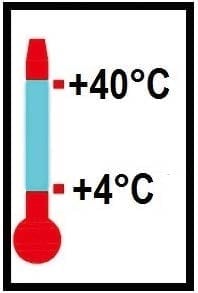 |
Y1A8G
& Y1B8G |
|
Material |
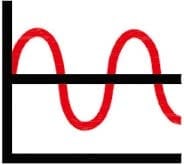 |
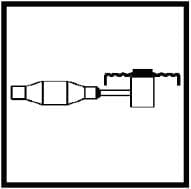 |
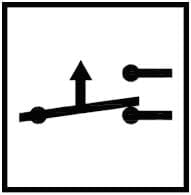 |
 |
||
|
Aluminum |
Applications
-Wall mounting for indoor or outdoor temperature control of cold rooms.
-Temperature control of industrial or commercial premises.
-Outdoor temperature control of antifreeze heaters.
-Green houses and livestock stables temperature control.
Housing: Aluminum, IP65, IK10. Mounted on a SUS304 stainless steel wall mounting plate which keeps the temperature sensing element away from the wall. Grey RAL7032 epoxy painting. Stainless steel captive cover screws. Captive aluminum lid.
Set point adjustment ranges: 4-40°C (40-105°F)
Set point adjustment: By °C printed knob. All types have an adjustable rotation limit system located inside the knob that allows reducing the set point adjustment span. Types with external adjustment have a transparent window. This device allows seeing the pilot light and the knob position. °F values are available as an option.
Action: Temperature control.
Sensing element: Liquid filled “pigtail” bulb, mounted on the side of plastic housing.
Electrical connections: Inside, on screw terminal connection block.
Earthing: Internal and external screw terminal.
Pilot light: Allow to visualize thermostat contact output position. Standard for all models with transparent window. Non Standard and on special request only for models with plain aluminum cover.
Cable input and output: Two M20 cable glands, Black PA66.
Mounting: Wall mounting, by 4 holes for screws dia. 4 to 5 mm, 94 x 92 mm distance.
Identification: Metallic identification label, riveted.
Contact: SPDT
Electrical rating, resistive loads:
-Open on temperature rise contact (C-1) 16A 250V, 50 ~60Hz: >100000 cycles,
20A 250V, 50 ~60Hz: ≥ 50000 cycles,
10A 400V, 50 ~60Hz: ≥ 50000 cycles.
-Close on temperature rise contact (C-2): 6A 250V 50 ~60Hz: >100000 cycles
Electrical rating, inductive loads:
-Open on temperature rise contact (C-1): 6A 250V, 50 ~60Hz: >100000 cycles
-Close on temperature rise contact (C-2):0.6A 250V 50 ~60Hz: >100000 cycles.
Minimum storage temperature: -35°C (-30°F)
Maximum ambient temperature: 60°C (140°F)
For more technical information see 8G thermostat technical data sheet
Main references
| Temperature adjustment ranges°C (°F) | References with external adjustment | References with internal adjustment | Differential °C (°F) |
| 4-40°C (40-105°F) | Y1B8G4040AQ30001J | Y1A8G4040AQ30001J | 1,6±1°C (2,9±2°F) |
Downloadable
Related products
Pipe surface temperature limiter boxes
Room and antifreeze temperature control boxes
Room and antifreeze temperature limiter boxes
Room and antifreeze temperature control boxes
Remote temperature control boxes
Room and antifreeze temperature control boxes
T connection box for heat tracing cables with antifreeze thermostat
Room and antifreeze temperature control boxes
Pipe surface temperature control boxes
Technical informations associated to this product
-
JPC Design concept of the Y1 types aluminum enclosures
Y1 range includes a wide range of thermostats in IP65* metal housing with high mechanical resistance (IK10** except models with external knob), intended for commercial or industrial applications covering ranges from -35 °C to +760 °C. -
Thermostats installation
The proper functioning of a thermostat depends primarily on the correct choice of the component, but also the conditions of its installation. Conditions used to calibrate regulating and control equipment in the factory are always ideal laboratory conditions, ensuring measurement accuracy and repeatability. These conditions are rarely those found in practice when installing thermostats. However, with a minimum of constraints, it is possible to optimize assemblies. -
Electrical contacts
As numerous mechanisms exist, we decided not to distinguish on the basis of constructive technique, but according to their operation speed, which is the key element. -
Electrical protection classes
The housings are designed to protect electrical equipment located inside. This protection must be considered in the electrical and environmental angles.)

